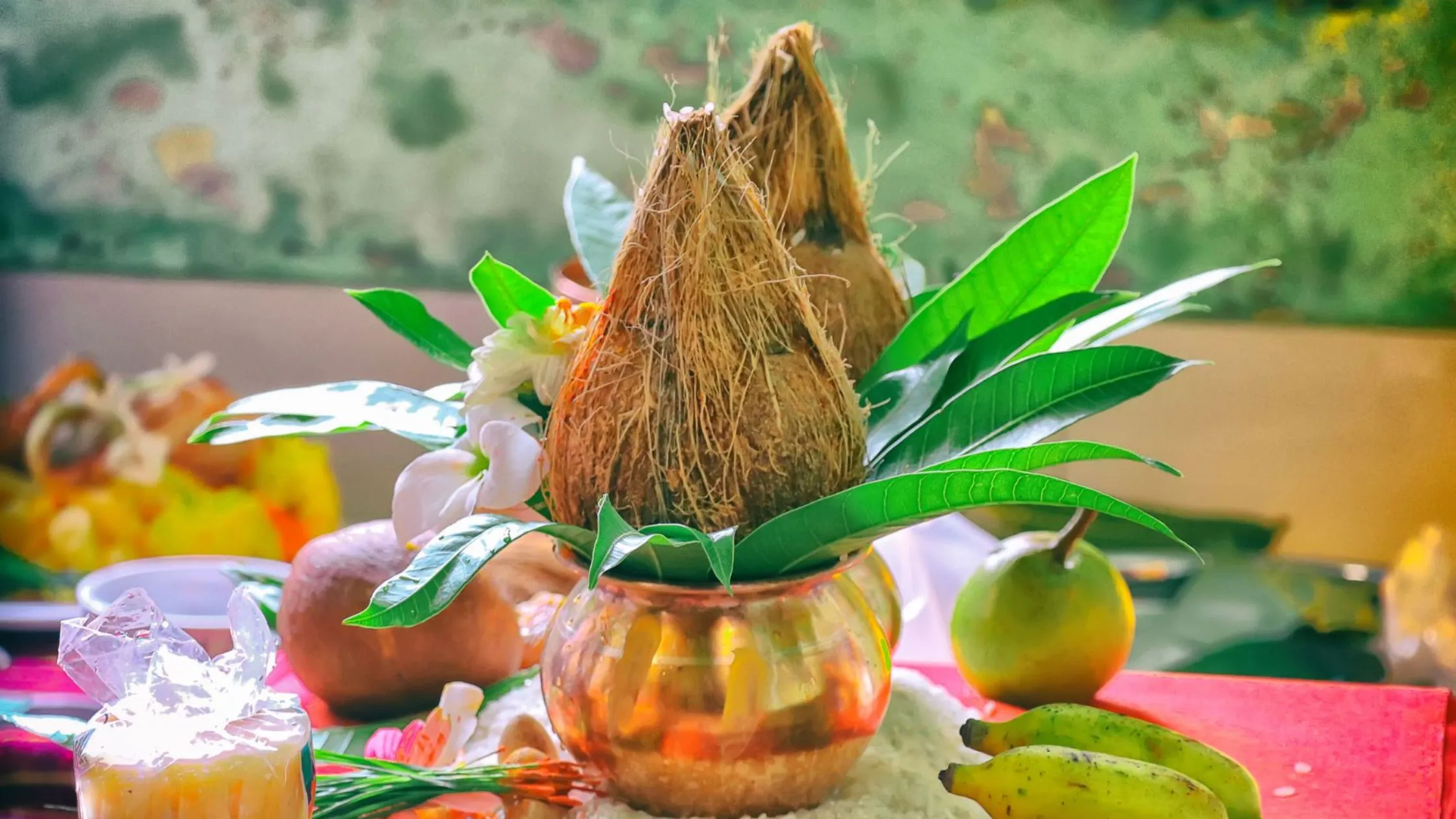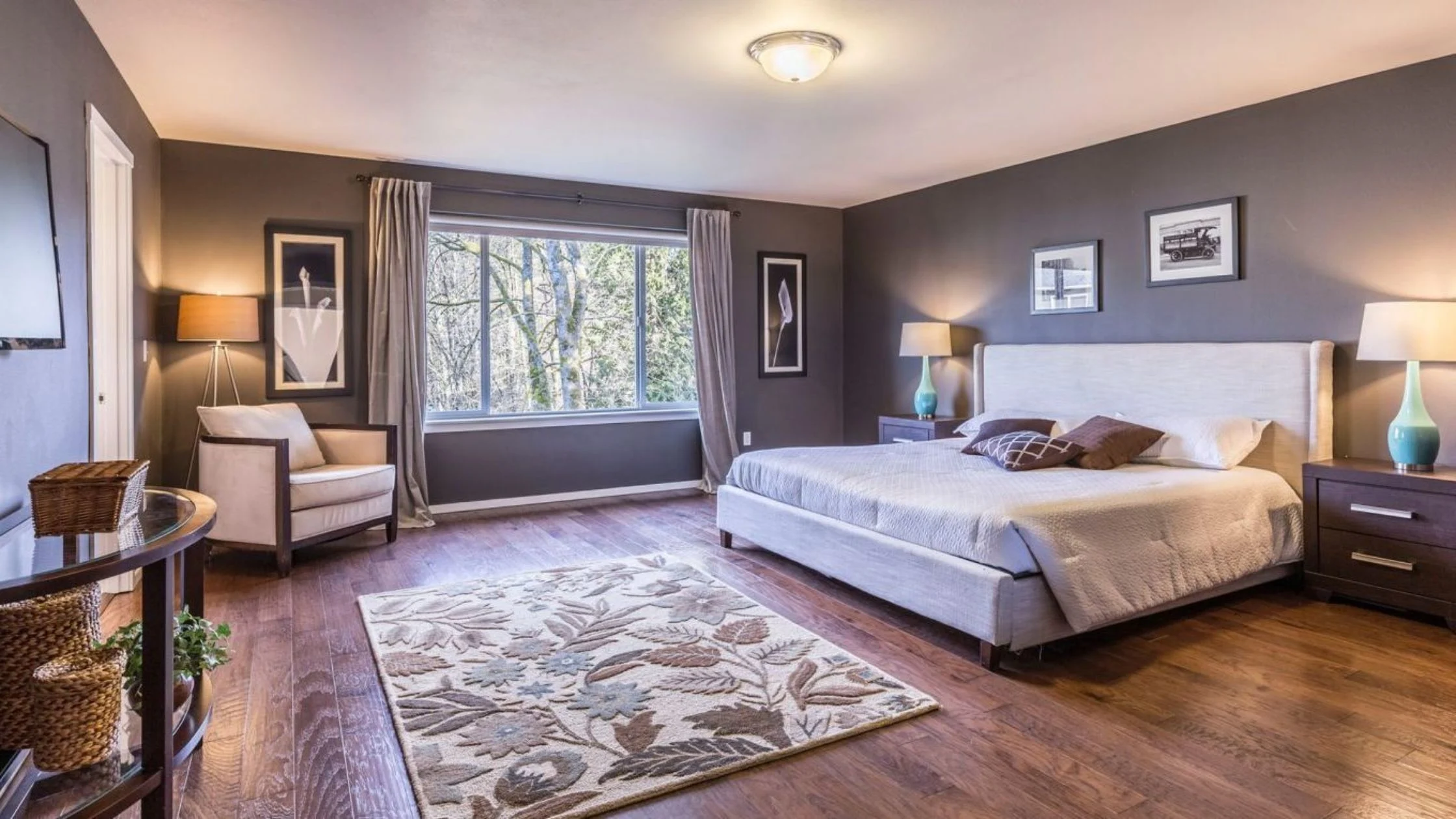Table of Content
▲So what do you mean by Vastu Plants for Home? Read and find! It is a well-known fact that green plants and trees add beauty and elegance to the houses in which they are kept. They also help clean the air we breathe. However, did you know that some plants are highly compatible with Vastu and will do wonders for the overall positivity of your home? But alone, the right Vastu plants for the home should be chosen to reap the maximum benefits along with positive emotions. If they do not adhere to the principles of Vastu Shastra and are placed in the wrong direction, they can bring misfortunes to the inhabitants of the house. Here is a comprehensive list of Vastu shastra plants and trees that can bring positivity and harmony to your home.
-
Holy basil
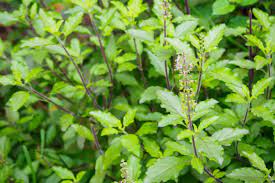 Holy basil or "Tulsi" (Ocimum sanctum) is considered very sacred and apostolic. The best place to plant it is in the north, east, or even in a combination - northeast direction.
Much more than Vastu compatible, Tulsi / Basil is a medicinal plant. Its leaves purify the digestive and circulatory systems by eliminating toxins from the blood.
He is also an excellent air purifier, which is why his role in Vastu Shastra is so highly regarded. Make sure your basil plant gets enough air and sunlight.
Holy Basil is one of the most used plants for the home according to Vastu Shastra.
Holy basil or "Tulsi" (Ocimum sanctum) is considered very sacred and apostolic. The best place to plant it is in the north, east, or even in a combination - northeast direction.
Much more than Vastu compatible, Tulsi / Basil is a medicinal plant. Its leaves purify the digestive and circulatory systems by eliminating toxins from the blood.
He is also an excellent air purifier, which is why his role in Vastu Shastra is so highly regarded. Make sure your basil plant gets enough air and sunlight.
Holy Basil is one of the most used plants for the home according to Vastu Shastra.
-
Lucky bamboo plant
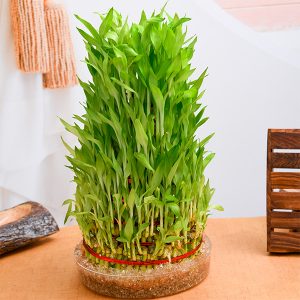 Lucky Bamboo (Dracaena braunii) promotes luck and peace. Brings wealth and fame. Do not confuse it with the common bamboo plant (Bambusa vulgaris), it is very different.
Make sure not to use a stunted bamboo plant, as it is against nature. Yellow bark should be preferred over darker bamboo bark. This is one of the luckiest plants used for the home.
Lucky Bamboo (Dracaena braunii) promotes luck and peace. Brings wealth and fame. Do not confuse it with the common bamboo plant (Bambusa vulgaris), it is very different.
Make sure not to use a stunted bamboo plant, as it is against nature. Yellow bark should be preferred over darker bamboo bark. This is one of the luckiest plants used for the home.
-
Money Plant
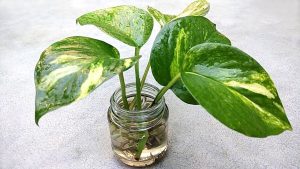 Epipremnum aureum or money plant is one of the common plants and trees used in the practice of Vastu Shastra. The Money Plant in Vastu Shastra is said to bring wealth and prosperity to the owners. It should be placed in the north or east direction of the house.
Money Plants in Homes can be placed indoors and even in bedrooms, but not near the headrest or footrest of beds. It is very lucky to put Money Plants on the balconies, but they should be placed on the northeast side of the balcony. It is one of the most widely used vast plants for your money.
Epipremnum aureum or money plant is one of the common plants and trees used in the practice of Vastu Shastra. The Money Plant in Vastu Shastra is said to bring wealth and prosperity to the owners. It should be placed in the north or east direction of the house.
Money Plants in Homes can be placed indoors and even in bedrooms, but not near the headrest or footrest of beds. It is very lucky to put Money Plants on the balconies, but they should be placed on the northeast side of the balcony. It is one of the most widely used vast plants for your money.
-
Neem tree
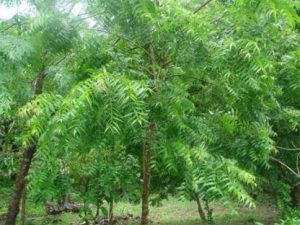 Having a neem tree (Azadirachta indica) in the home evokes positivity. The vast house neem tree is considered auspicious and also has medicinal properties. The neem tree should be placed in the northwest corner. The air that flows through the neem plant must pass through the windows in the master bedroom, which is considered good for health. The neem tree is also one of the best large trees for the home.
Having a neem tree (Azadirachta indica) in the home evokes positivity. The vast house neem tree is considered auspicious and also has medicinal properties. The neem tree should be placed in the northwest corner. The air that flows through the neem plant must pass through the windows in the master bedroom, which is considered good for health. The neem tree is also one of the best large trees for the home.
-
Banana tree
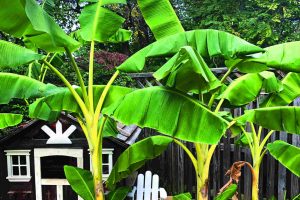 The banana plant is considered sacred and even worshiped. According to the sacred texts, the banana plant in the "Vastu House" is said to symbolize Lord Vishnu. On Thursday, people pray for the banana plant with Lord Vishnu. Therefore, it is one of the most auspicious Vastu trees in the house.
Vastu Shastra dictates that the banana plant should be placed in the northeast direction of your home.
Also, Read - How Apartment Living Can Improve Work-Life Balance
The banana plant is considered sacred and even worshiped. According to the sacred texts, the banana plant in the "Vastu House" is said to symbolize Lord Vishnu. On Thursday, people pray for the banana plant with Lord Vishnu. Therefore, it is one of the most auspicious Vastu trees in the house.
Vastu Shastra dictates that the banana plant should be placed in the northeast direction of your home.
Also, Read - How Apartment Living Can Improve Work-Life Balance
-
Peony
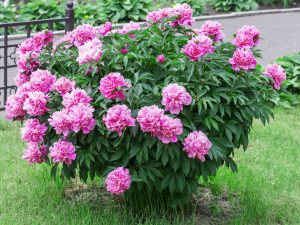 The peony is a beautiful and bright flower. It symbolizes optimism. It is bright, elegant, and delicious. Due to these qualities, it has been used as a metaphor for female reproduction, love, and femininity. People who want to find love should plant peonies in the southwest direction of the house or decorate this southwest area of the house with peonies.
It is red, and because red is associated with divine rituals, it is considered very auspicious. It is a wonderful flower and a symbol of peace, goodness, and courage.
The peony is a beautiful and bright flower. It symbolizes optimism. It is bright, elegant, and delicious. Due to these qualities, it has been used as a metaphor for female reproduction, love, and femininity. People who want to find love should plant peonies in the southwest direction of the house or decorate this southwest area of the house with peonies.
It is red, and because red is associated with divine rituals, it is considered very auspicious. It is a wonderful flower and a symbol of peace, goodness, and courage.
-
Chrysanthemum
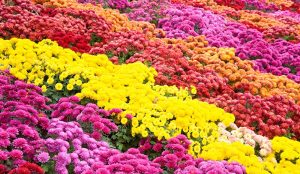 The beautiful yellow chrysanthemum flower in Vastu shastra symbolizes happiness, brightness, and optimism. Usually, it is gifted to others. Buddhists decorate their altars with this flower. It symbolizes strong positivity, which is why it attracts good luck in the house. It is best placed in the living room and should not be placed in the bedroom.
As it attracts good luck, this is one of the most important plants according to Vastu.
The beautiful yellow chrysanthemum flower in Vastu shastra symbolizes happiness, brightness, and optimism. Usually, it is gifted to others. Buddhists decorate their altars with this flower. It symbolizes strong positivity, which is why it attracts good luck in the house. It is best placed in the living room and should not be placed in the bedroom.
As it attracts good luck, this is one of the most important plants according to Vastu.
-
Plum blossoms
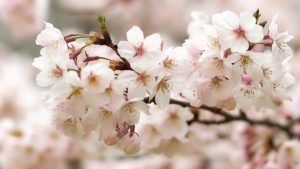 According to Vastu Shastra Plum Blossoms (Prunus mume) demands harmony and wealth in the home. This plant helps enhance positivity and is best located on the northeast or north side of the house. Also, according to Vastu Plum Blossoms, they can be grown anywhere in the garden area.
According to Vastu Shastra Plum Blossoms (Prunus mume) demands harmony and wealth in the home. This plant helps enhance positivity and is best located on the northeast or north side of the house. Also, according to Vastu Plum Blossoms, they can be grown anywhere in the garden area.
-
Citrus
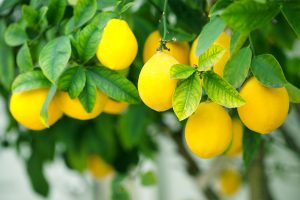 Citrus (Citrus medica), also known as Buddha's Hand, is a finger-shaped citron that symbolizes luck and happiness in Vastu shastra. It is known as the Buddha's Hand, which reminds you of the inverted fingers of the Lord Buddha during a meditative posture.
Citrus (Citrus medica), also known as Buddha's Hand, is a finger-shaped citron that symbolizes luck and happiness in Vastu shastra. It is known as the Buddha's Hand, which reminds you of the inverted fingers of the Lord Buddha during a meditative posture.
-
Daffodil
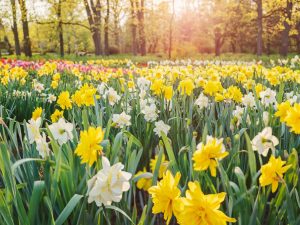 The narcissus flower in Vastu Shastra symbolizes faith, tolerance, honesty, and truth. It is better to plant it in the north or northeast direction of the house. It is said to bring out hidden talents and is considered to bring good luck and fortune. It is also a very cute flower. When choosing a daffodil, be careful not to choose the dwarf variety because it is small in size and does not promote positivity.
Also, Read - How To Start A Balcony Kitchen Garden
The narcissus flower in Vastu Shastra symbolizes faith, tolerance, honesty, and truth. It is better to plant it in the north or northeast direction of the house. It is said to bring out hidden talents and is considered to bring good luck and fortune. It is also a very cute flower. When choosing a daffodil, be careful not to choose the dwarf variety because it is small in size and does not promote positivity.
Also, Read - How To Start A Balcony Kitchen Garden
-
Orchid
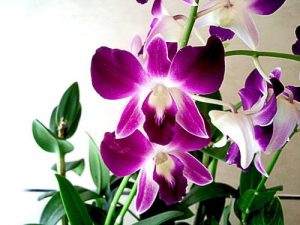 Orchids (orchid family) are a symbol of fertility and are believed to bring many descendants. It is a symbol of perfection, abundance, and growth, according to Vastu shastra.
Orchids (orchid family) are a symbol of fertility and are believed to bring many descendants. It is a symbol of perfection, abundance, and growth, according to Vastu shastra.
-
Lotus
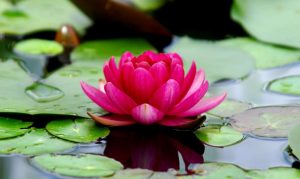 The lotus (Nelumbo nucifera) symbolizes strength, morality, and purity. It should be placed in front of the house to get the maximum benefits. It can also be placed indoors. The lotus is associated with the goddess of wealth, Lakshmi, and Lord Buddha. The presence of the lotus is believed to bring wealth and prosperity and is one of the most auspicious Vastu plants for the home.
Buddhists around the world recognize the lotus as the sacred seat of the Buddha. Since it was made from clay, the Chinese consider it unspoiled and beautiful. Every part of the plant, from the root to the petals, has medicinal properties.
The lotus (Nelumbo nucifera) symbolizes strength, morality, and purity. It should be placed in front of the house to get the maximum benefits. It can also be placed indoors. The lotus is associated with the goddess of wealth, Lakshmi, and Lord Buddha. The presence of the lotus is believed to bring wealth and prosperity and is one of the most auspicious Vastu plants for the home.
Buddhists around the world recognize the lotus as the sacred seat of the Buddha. Since it was made from clay, the Chinese consider it unspoiled and beautiful. Every part of the plant, from the root to the petals, has medicinal properties.
-
Layla
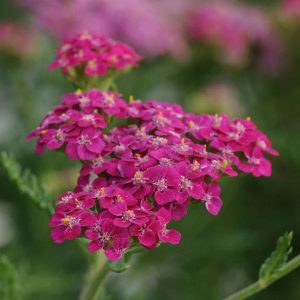 Lily (genus Lilium) conveys happiness and harmony. The relaxing atmosphere helps people maintain their composure. It is best placed in the bedroom or in a place where meditation is practiced. Lilies are flowers of advanced spirituality. Lilies are ideal gifts given at wedding ceremonies as they symbolize partnership and togetherness.
Lily (genus Lilium) conveys happiness and harmony. The relaxing atmosphere helps people maintain their composure. It is best placed in the bedroom or in a place where meditation is practiced. Lilies are flowers of advanced spirituality. Lilies are ideal gifts given at wedding ceremonies as they symbolize partnership and togetherness.
-
Jasmine
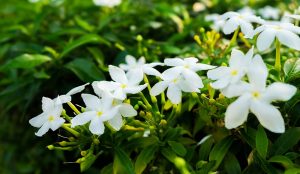 The sweet-smelling flowers of the jasmine plant can lift your spirits with their scent. According to the jasmine plant, it attracts positive energy and calms worn-out nerves after returning home from a long day at work. It promotes harmony in love and romance. Inside the house, place the jasmine near a south-facing window and when outside in the north, east, or northeast.
The sweet-smelling flowers of the jasmine plant can lift your spirits with their scent. According to the jasmine plant, it attracts positive energy and calms worn-out nerves after returning home from a long day at work. It promotes harmony in love and romance. Inside the house, place the jasmine near a south-facing window and when outside in the north, east, or northeast.
-
Aloe vera
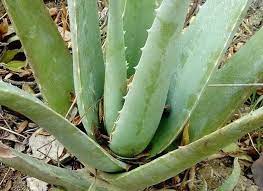 An aloe vera plant at home according to Vastu is your best bet to attract positive energy.
They also absorb large amounts of carbon dioxide and emit equal amounts of oxygen. This property helps to completely purify the air. This can also be obtained as a refreshing drink or as a facial ingredient. Place the aloe plant in the north or east direction.
An aloe vera plant at home according to Vastu is your best bet to attract positive energy.
They also absorb large amounts of carbon dioxide and emit equal amounts of oxygen. This property helps to completely purify the air. This can also be obtained as a refreshing drink or as a facial ingredient. Place the aloe plant in the north or east direction.
Vastu plants for the garden
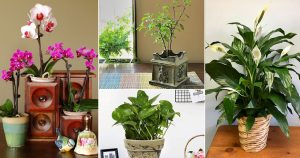 When it comes to Vastu plants for the home that can be grown in the garden, peppermint, green pepper, and coriander plants are the best options.
These little plants have health benefits and are compatible with Vastu. Some of the other favorable trees and plants are anar (pomegranate), dal chini (cinnamon), rose, bunagh / nag champa (Calophyllum inophyllum), kesar, pakol (Mimosops lingi), champa (Michilia champaka), and barigata (Nicanthis arpotrestis) shamili (Jasminum). polyanthum).
The hot pepper is one of the least appreciated plants in our botanical gardens. Many wonder what is the story behind the green pepper plant in the spacious home.
Green bell pepper or any other green bean plant will reap the benefits if we place it on the southeast side.
Plants should be avoided according to Vastu
Remove dead or dying plants from the home. Even dried flowers are not so lucky!
Myrtle (genus Lagerstroemia) is said to be the favorite of evil spirits! So be careful when building your house!
Tall trees in the northeast or east directions produce negative energy.
Some plants such as the cotton plant, the silk cotton plant, and the Palmyra tree are considered unlucky.
Babol / kikar and other thorny plants around the house create chaos and disharmony, avoid them as they are not huge plants for the money.
Do not grow indoors in the northeast corner of the house except for holy basil (Tulsi).
Large trees are best planted in a south or west direction and should receive sufficient sunlight. While it may be small in the north and east!
Lactobacillus plants are not great! In addition to dairy trees such as Mahua, Banya and Peepal.
Fruit trees should not be planted indoors! Especially Mango and Jamun!
Bonsai, according to Vastu, is negative, while according to Fengshui, it is really good for the house! Learn the paradox now!
According to Vastu, avoid planting reptile plants at the entrance of the house, while growing outside the wall should be avoided. Reptiles should only be planted in the garden.
Do not plant trees in the front or in the middle of the house. These will hinder the flow of energy. Vast plants will not be considered for money or for home.
Plants have a direct relationship with humans because we inhale the oxygen that we exhale. Some other plants and trees emit negative energy and harmful gases that can negatively affect us. Nature affects us, so it is necessary to grow vast plants for home and money or home to get maximum benefits. Choose from the available options to create Vastu in your home and bring prosperity and good luck.
When it comes to Vastu plants for the home that can be grown in the garden, peppermint, green pepper, and coriander plants are the best options.
These little plants have health benefits and are compatible with Vastu. Some of the other favorable trees and plants are anar (pomegranate), dal chini (cinnamon), rose, bunagh / nag champa (Calophyllum inophyllum), kesar, pakol (Mimosops lingi), champa (Michilia champaka), and barigata (Nicanthis arpotrestis) shamili (Jasminum). polyanthum).
The hot pepper is one of the least appreciated plants in our botanical gardens. Many wonder what is the story behind the green pepper plant in the spacious home.
Green bell pepper or any other green bean plant will reap the benefits if we place it on the southeast side.
Plants should be avoided according to Vastu
Remove dead or dying plants from the home. Even dried flowers are not so lucky!
Myrtle (genus Lagerstroemia) is said to be the favorite of evil spirits! So be careful when building your house!
Tall trees in the northeast or east directions produce negative energy.
Some plants such as the cotton plant, the silk cotton plant, and the Palmyra tree are considered unlucky.
Babol / kikar and other thorny plants around the house create chaos and disharmony, avoid them as they are not huge plants for the money.
Do not grow indoors in the northeast corner of the house except for holy basil (Tulsi).
Large trees are best planted in a south or west direction and should receive sufficient sunlight. While it may be small in the north and east!
Lactobacillus plants are not great! In addition to dairy trees such as Mahua, Banya and Peepal.
Fruit trees should not be planted indoors! Especially Mango and Jamun!
Bonsai, according to Vastu, is negative, while according to Fengshui, it is really good for the house! Learn the paradox now!
According to Vastu, avoid planting reptile plants at the entrance of the house, while growing outside the wall should be avoided. Reptiles should only be planted in the garden.
Do not plant trees in the front or in the middle of the house. These will hinder the flow of energy. Vast plants will not be considered for money or for home.
Plants have a direct relationship with humans because we inhale the oxygen that we exhale. Some other plants and trees emit negative energy and harmful gases that can negatively affect us. Nature affects us, so it is necessary to grow vast plants for home and money or home to get maximum benefits. Choose from the available options to create Vastu in your home and bring prosperity and good luck.
Vastu plants for office
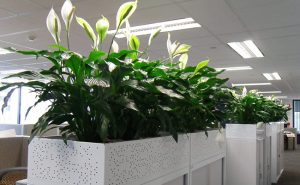 Some of these plants are also very useful for the office, such as the money plant and the lucky bamboo.
Lucky bamboo or money plants make great corporate gifts, not only because they look good, which they are, but also because greenery can motivate you to focus more on the tasks at hand, and therefore, it is the perfect office gift. Coming to the Vastu part, both plants are also very lucky.
Lucky Bamboo and Money Factory, well, their names say it all, right?
Lucky bamboo is not actually the bamboo we know, but rather a subspecies of plants. The number of buds to select is also a lot, like 5 stems paving the way to wealth and 6 giving you tremendous luck! Lucky bamboo can also make an excellent bonsai plant.
On the other hand, a money plant doesn't fit in your cubicle, a plant is better decorated like a vine inside your pantry or reception desk. But if your heart races to make it part of your desk, it can work as well as long as you cut the vines, or arrange them beautifully to spread over your cubicle or desk.
Also, Read - Best 3 Hill Station Properties in India
Some of these plants are also very useful for the office, such as the money plant and the lucky bamboo.
Lucky bamboo or money plants make great corporate gifts, not only because they look good, which they are, but also because greenery can motivate you to focus more on the tasks at hand, and therefore, it is the perfect office gift. Coming to the Vastu part, both plants are also very lucky.
Lucky Bamboo and Money Factory, well, their names say it all, right?
Lucky bamboo is not actually the bamboo we know, but rather a subspecies of plants. The number of buds to select is also a lot, like 5 stems paving the way to wealth and 6 giving you tremendous luck! Lucky bamboo can also make an excellent bonsai plant.
On the other hand, a money plant doesn't fit in your cubicle, a plant is better decorated like a vine inside your pantry or reception desk. But if your heart races to make it part of your desk, it can work as well as long as you cut the vines, or arrange them beautifully to spread over your cubicle or desk.
Also, Read - Best 3 Hill Station Properties in India

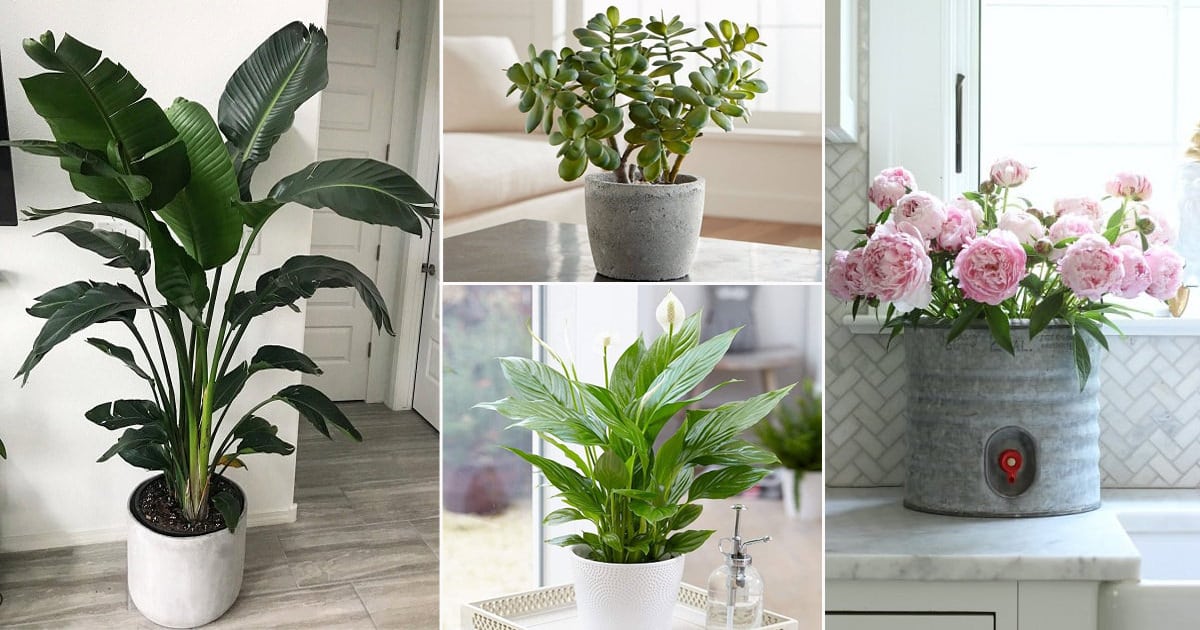

_1772441702.webp)


